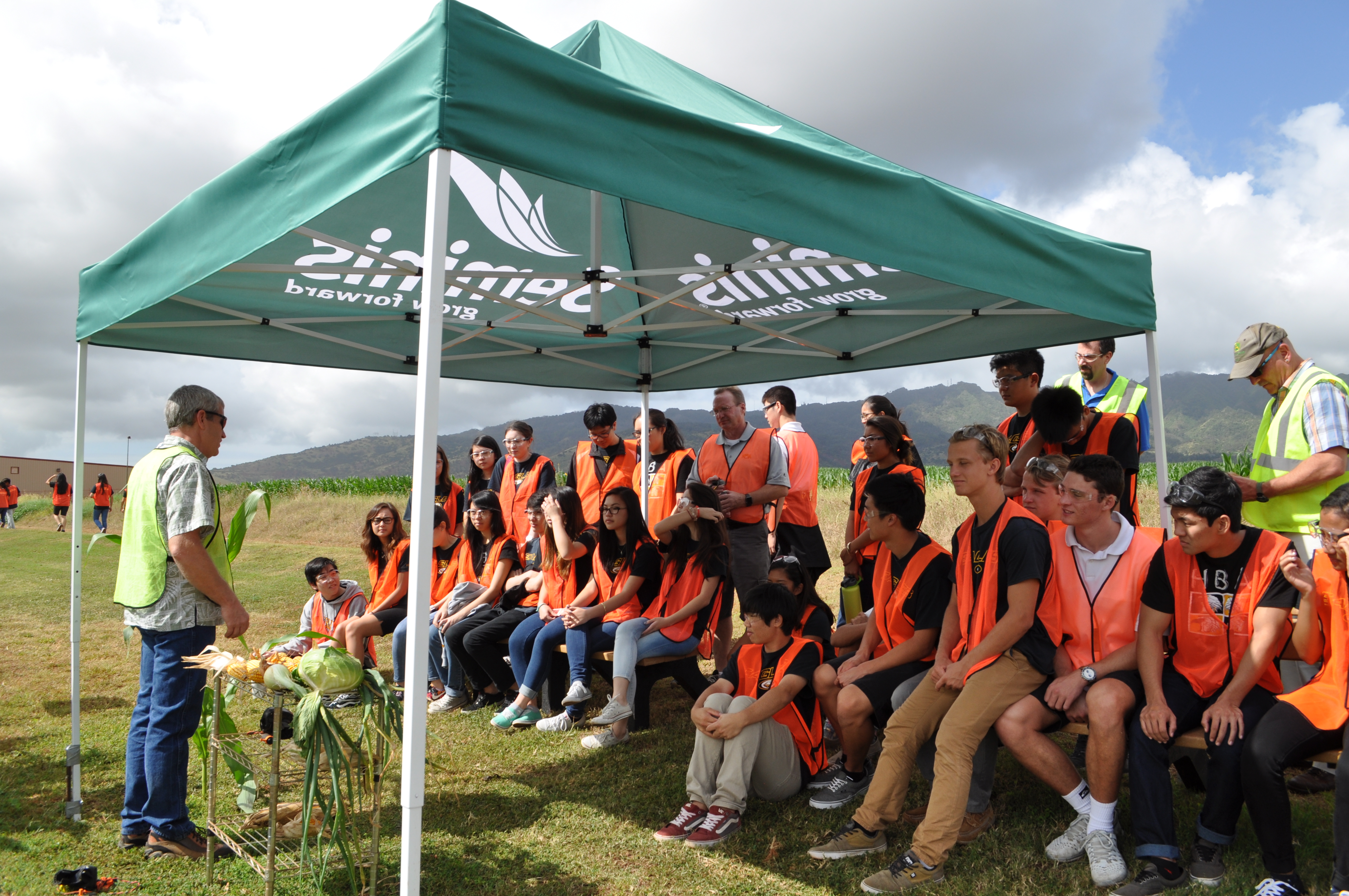Classes Take a Closer Look at GMOs

Students were introduced to a presentation about the history of Monsanto and its technology for genetic modification. This was followed by a tour around the Monsanto test plots to look at some of their crops. Both the presentation and tour were hosted by Monsanto employees.
For the AP Environmental class, the field trip was part of a unit on genetically modified organisms (GMOs), their benefits and dangers. Genetically modifying an organism involves altering or adding gene materials to the organism. There are many controversial issues surrounding the topic, as many believe that GMOs can have adverse effects on the environment and human health. The U.S. has restrictions in place concerning genetic modifications in commercial crops. GMO crops are subject to inspections by the Animal and Plant Health Inspection Service, and companies need approval from the Food and Drug Administration before they can make a GMO product commercially available.
Monsanto has been the target of anti-GMO protest groups but the company says that their plants are genetically modified to help crops repel insects or to survive harsh weather conditions. “GMOs can benefit society with better crops…preventing infections and reducing farmers need to spray crops with chemicals,” says senior Chester Hui, AP Biology student. Monsanto says that its mission is to benefit both farmers and the economy by providing seeds that are more efficient and just as safe. “I believe we should handle the idea of GMOs with reasonable caution. However, it is important that we continue to expand this field because it can help alleviate many of our world’s problems if used correctly,” says senior Sydney Suzuki.
After the field trip, students in the AP Biology class were tasked to write a report on either GMOs or Monsanto. The AP Environmental students were required to write a reflection on Monsanto and GMOs.
